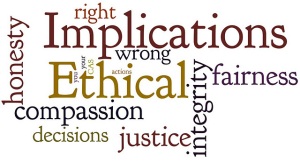 As a follow-up to the highly popular Q&A last week featuring DLA attorneys Joshua Briones and Ana Tagvoryan, they both have graciously allowed us to distribute a few of their social media discovery templates found in the appendix of their book: Social Media as Evidence: Cases, Practice Pointers and Techniques, published by the American Bar Association, available for purchase online from the ABA here.
As a follow-up to the highly popular Q&A last week featuring DLA attorneys Joshua Briones and Ana Tagvoryan, they both have graciously allowed us to distribute a few of their social media discovery templates found in the appendix of their book: Social Media as Evidence: Cases, Practice Pointers and Techniques, published by the American Bar Association, available for purchase online from the ABA here.
The first template is deposition questions relating to social media evidence. The second is a sample of special interrogatories. They can be accessed at this link. Thanks again to Joshua and Ana for their insightful interview, and for providing these resources. Their book contains many more such templates and practice tips, including sample document requests, proposed jury instructions, client litigation hold memorandums with a detailed preservation checklist, preservation demand letters, and much more.
In other social discovery news, the ABA Journal this month published an insightful piece on social media discovery, featuring attorney Ralph Losey, with a nice mention of X1 Social Discovery. In a key excerpt, the ABA Journal acknowledges that “there is a pressing need for a tool that can monitor and archive everything a law firm’s client says and does on social media.” The article also noted that more than 41% of firms surveyed in Fulbright’s 2013 annual Litigation Trends report, acknowledged they preserved and collected such data to satisfy litigation and investigation needs, which was an increase from 32% the prior year.
Another important publication, Compliance Week, also highlighted social media discovery, where Grant Thornton emphasizes their use of X1 Social Discovery as part of the firms anti-fraud and data leakage toolset. Incidentally, when determining whether a given eDiscovery tool is in fact a leading solution in its class, in our view it is important to look at how many consulting firms are actually utilizing the technology, as consulting firms tend to be sophisticated buyers, who actually use the tools in “the front lines.” By our count we have over 400 paid install sites of X1 Social Discovery and over half of those – 223 to be exact – are eDiscovery and other digital investigation consulting firms. We believe this is a key testament to the strength of our solution, given the use by these early adopters.

 Twitter continues to be a significant source of evidence in litigation and corporate investigation matters. A legal database search of published opinions reveals several dozen known cases recently involving Twitter-based evidence. See, e.g.,
Twitter continues to be a significant source of evidence in litigation and corporate investigation matters. A legal database search of published opinions reveals several dozen known cases recently involving Twitter-based evidence. See, e.g., 

